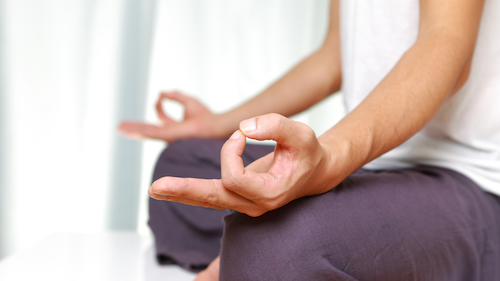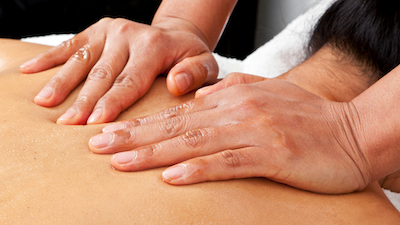Why Meditation Is My Bedrock

About me
My name is Daniel. Like many creatively inclined individuals, my upbringing tried to mold me into a different person than I am. It’s a cliché, but one that was real and left me with years of mental and emotional trauma. My parents disregarded my art, writing, and theater as acceptable career paths. I felt unseen and unaccepted. My being—my voice—wasn’t good enough. By the time I was a sophomore in high school, serious depression and suicidal thoughts became a regular, chronic battle. I sought refuge in substances and people until I found myself returning again and again to the only real source of healing for my pain—meditation, my bedrock.
Struggling
Struggling with acceptance, identity and abuse during my formative years left me feeling estranged and uncertain of my place in the world. My family didn’t accept who I was, so I learned not to accept who I was either. I watched so many of my peers find their place in society—knowing who they were, what they wanted, and where they were going. But I didn’t know any of those things. I felt constantly out of place and alienated.
My depression grew and grew. My coping mechanisms grew as well. I drank a lot; used a lot of substances; rolled from one co-dependent relationship to another leaving chaos and destruction in my wake. I kept trying to find the solutions in others, in things, in feelings, in my career and the material elements I thought would make a home. I reached a breaking point. My life had almost no elements of my real dreams. I hated my job. Many of my friendships were one dimensional. I wasn’t in an environment that I loved. I hid myself in a small and forgettable part of the world because I wanted to forget the pain of my childhood. But there is no forgetting.
Finding meditation
I don’t exactly know when I found my meditation practice, but I know it started with a walk. Overwhelmed with feelings of anxiety, pain, regret, and fear, the walks gave me an opportunity to find open space, to let my mind wander and process, to find my breath and settle my heart, to see my stress objectively. Over time I learned perform the breathing and reflection without the walking; to conjure my safe space whenever and wherever I needed. Until finally I learned to create that space in my home as a daily practice.
Meditation is now a non-negotiable bedrock of my health and wellness. While I still utilize the help of therapists, coaches, and healthcare experts, meditation is my single greatest tool for healing because it is my own. It requires nothing else except that I show up for myself. I don’t need a studio or guide; I can do it anywhere. Nor do I need a prescription or refill; its infinite and free. I don’t need a huge chunk of time; 5 minutes or 50 minutes are both acceptable. It is truly and completely my own. I can rely on it and call upon in whenever, wherever, for whatever reason.
How I live now
I have studied many forms of meditation since then. Transcendental Meditation, Zen Meditation, walking meditation, yogic pranayama, guided meditation, the reciting of prayers and mantras, using a rosary or mala beads—whatever the form, the objective is the same: quiet the mind, settle the emotions, and listen to the voice of your deep and true self. This makes it quite versatile and malleable. It can take any form that feels comfortable in the moment.
What did this do for my depression and anxiety? I learned to hear my real voice. The acceptance of that true part of myself is at the core of my ongoing work of self-healing. Until we find and listen to our deep and true voice, we will continue to put ourselves through the same cycles of pain and suffering. Meditation hasn’t solved my depression, but it helps me conquer it daily, sometimes hourly. With meditation, I learned to see deeply into myself and address the real source of my ongoing pain, which isn’t always easy. Hearing myself and accepting myself is the only way to love myself. And loving myself is the only way to real happiness.


Leave a Reply
You must be logged in to post a comment.